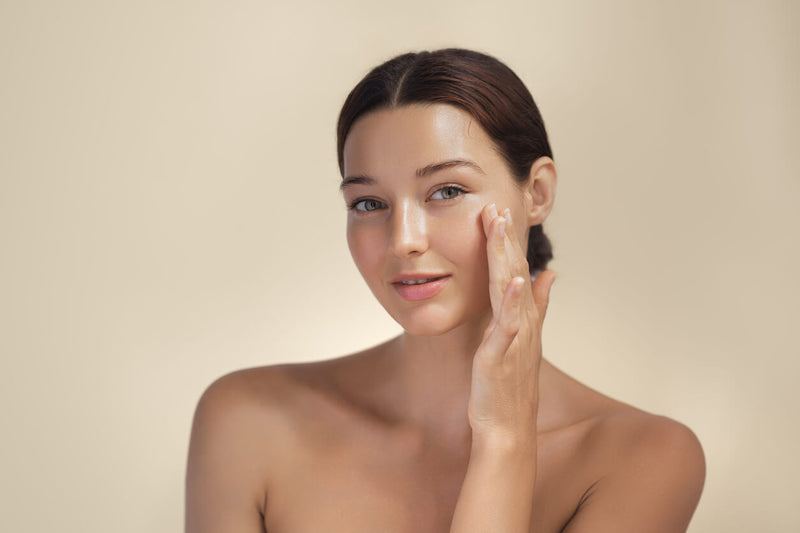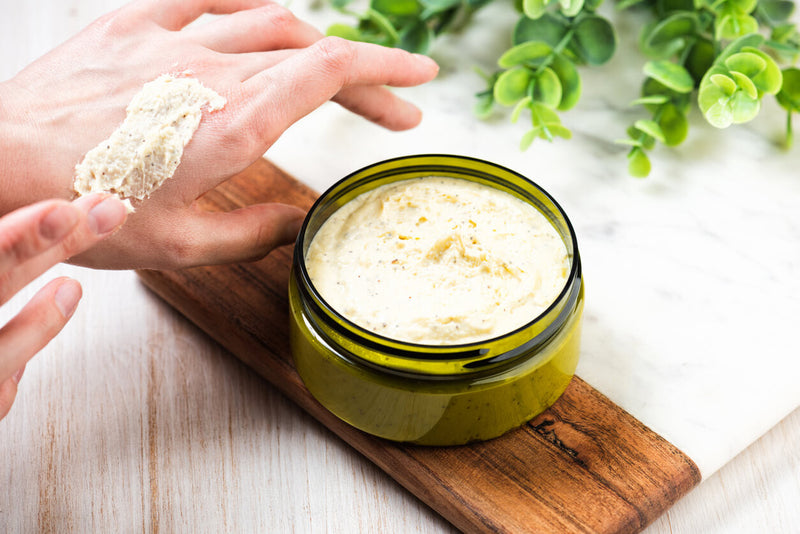

While wrinkles are a natural part of the aging process, many people look for ways to reduce their appearance or slow their development. And while effective treatments like botulinum toxin exist, many still prefer needle-free alternatives, especially topical anti-aging skincare solutions, hoping that they can offer significant improvements.
Anti-aging peptides are among the most-talked about ingredients today. These amino acids are said to help combat inflammation and reduce signs of aging. But do they actually work for wrinkles, or are they just another trend in skincare? Continue reading as we explore what the research says and how peptides can level up your anti-aging routine.
What are peptides?
Peptides are short chains of amino acids that serve as building blocks of proteins. These chains are composed of two to 50 amino acids (linked by chemical bonds), but they can also be longer than 50, which is referred to as polypeptide. Peptides are named based on the number of amino acids they have, like dipeptide for two, tripeptide for three, tetrapeptide for four, and so on.
There are different types of peptides and each has different roles on the body. When it comes to skincare, they are manufactured and applied topically through the use of skincare products. Peptides are said to deliver anti-aging benefits, like helping improve lines and wrinkles, and boosting collagen and elastin.
Peptides are available in a range of skincare products, including cleansers, serums, creams, and moisturizers. To take advantage of the benefits of this ingredient, go with formulas that are not easily washed off the skin like serums and moisturizers. These stay on the skin longer, allowing the peptides to penetrate deeper and work more effectively.
How do peptides work?
Skincare peptides act as signaling molecules that instruct the skin to do certain functions, such as speed up wound healing or boost collagen. Compared to formulas with larger molecules, skincare peptides are easily absorbed, penetrating deeper and helping the body create essential proteins.
Incorporating peptides in your regimen and applying them to your skin delivers a message to the body, signaling it to make more essential proteins. And as previously mentioned, there are different types of peptides used in skincare, each having different functions. These include:
-
Signal peptides – trigger the fibroblast to support the production of collagen, elastin, and other proteins essential for skin structure and elasticity. They are the most common type of peptides used in skincare.
-
Carrier peptides – deliver beneficial minerals (like copper) to certain enzymes, which are beneficial for wound healing and promoting the growth of essential skin proteins.
-
Neuropeptides – certain neuropeptides can mimic the effects of neurotoxins by reducing muscle activity, which can help soften lines and wrinkles.
-
Enzyme inhibitor peptides – can inhibit enzymes that contribute to the breakdown of collagen and other proteins, potentially slowing down skin aging.
What are the benefits of peptides in skincare?
Here’s how peptides skincare support healthier, younger-looking skin:
-
Help stimulate collagen and elastin – peptides act as messengers that signal the skin to produce more collagen and elastin. This can contribute to plumper, smoother, and younger-looking skin.
-
Hydrate and support skin barrier –peptides act as moisture magnets that can draw moisture into the skin and retain it, which can help strengthen the skin’s natural barrier.
-
Help fight fine lines and wrinkles – increased collagen and elastin can help soften the look of fine lines and wrinkles, for firmer and more youthful skin.
-
Improve skin texture – peptides can stimulate collagen and strengthen the skin barrier, which can contribute to smoother and more hydrated skin.
-
Restore firmness and elasticity – peptides can help improve skin firmness and elasticity by promoting collagen and elastin production.
What do studies say?
Can peptides reverse signs of aging? Some studies show that certain peptides provide anti-aging benefits, which are attributed to increased production of essential skin proteins, such as collagen and elastin. Here are a few studies demonstrating their effectiveness:
-
A 2019 study – examined the effects of peptides on premature aging. It involved 22 healthy Asian female volunteers over 40 years old, who were tasked to apply peptides on their faces and necks. After two weeks, there were significant improvements in skin wrinkles in five different sites, as assessed by skin topographic measurements.
-
A 2021 study – involved 55 female subjects, aged 35 to 60 years old with mild to moderate global face lines. They were randomized to apply a line-targeting peptide serum (LTPS) or placebo serum to their face twice daily for 12 weeks. Researchers found that the use of (LTPS) was effective in improving expression lines, wrinkles, and skin health after 12 weeks.
-
A 2023 review – suggested that several studies and clinical trials show that bioactive peptides are effective in improving skin appearance in both topical applications and oral administration, such as moisturizing skin and reducing skin aging.
Research indicates that they can be effective in improving skin health and appearance, as well as reduce wrinkles and promote wound healing. Peptides’ ability to stimulate the skin’s natural processes is one of the many reasons they are often used in anti-aging formulations.
How Dr. Sylvia Skin Care can help
If you’re thinking of introducing this ingredient to your regimen or looking for peptides for wrinkles, Dr. Sylvia Skin Care offers two formulations that can elevate your anti-aging routine.
Multi Peptide Youth Infusion – contains powerful peptides that help stimulate collagen production. It promotes a youthful complexion by helping firm and tighten the skin and improve the appearance of dark spots. It can also protect the skin from environmental stressors and improves the skin's ability to retain moisture.
P-TIOX Peptide Serum (SkinCeuticals) – targets the appearance of 9 types of expression lines, even those neurotoxin injections do not treat. It also provides intense hydration that can last up to 24 hours and unveils glass skin radiance in just one week. P-TIOX Peptide Serum is physician-tested to complement neurotoxin treatments.
What other skincare ingredients work well with peptides
Peptides skincare generally work well with various ingredients, including:
-
Hyaluronic acid – provides hydration and plumping benefits, which work well with the collagen-boosting ability of peptides.
-
Niacinamide – reduces inflammation, improves skin texture, and enhances skin barrier, which pairs well with peptides that target skin texture and firmness.
-
Vitamin C – is an antioxidant that can brighten the skin and protect it from environmental damage. This makes it a good complement for peptides that boost collagen production and tackle aging concerns.
-
Retinol – supports collagen production and speeds up skin cell turnover. Retinol can boost the anti-aging benefits of peptides.
-
Ferulic acid – is also a powerful antioxidant that can boost the effects and works well with different anti-aging ingredients such as vitamin C, vitamin E, and peptides.

It is not advisable to combine peptides with strong exfoliants like alpha-hydroxy acids (glycolic acid) or beta-hydroxy acids or BHAs (salicylic acid) in the same regimen. They can break down the peptide bonds and reduce the effectiveness of peptides.
Final thoughts
So, do peptides work for wrinkles? Science and results say yes. Just do take note that peptide skincare Singapore products don’t deliver overnight results; they have to be used consistently and combined with the proper skincare strategy.
Book a consultation with Cutis Laser Clinics in Singapore today or visit drsylviaskincare.com to explore our anti-aging serums and other medical-grade skincare essentials.
















